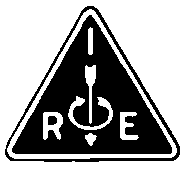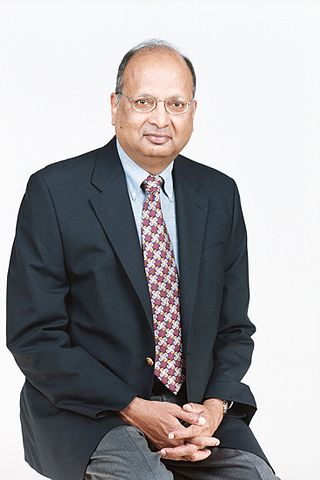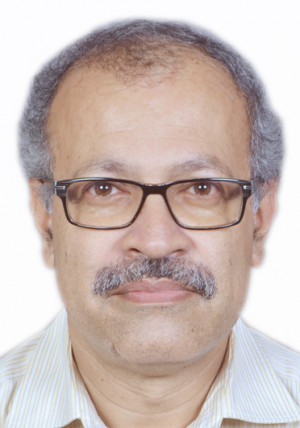Related Research Articles

The Institute of Electrical and Electronics Engineers (IEEE) is an American 501(c)(3) professional association for electronics engineering, electrical engineering, and other related disciplines.

Butler W. Lampson FRS is an American computer scientist best known for his contributions to the development and implementation of distributed personal computing.

The Institute of Radio Engineers (IRE) was a professional organization which existed from 1912 until December 31, 1962. On January 1, 1963, it merged with the American Institute of Electrical Engineers (AIEE) to form the Institute of Electrical and Electronics Engineers (IEEE).
Gottfried Ungerboeck is an Austrian communications engineer.

Arogyaswami J. Paulraj is an Indian-American electrical engineer, academic. He is a Professor Emeritus in the Dept. of Elect. Engg. at Stanford University.

Brian David Outram Anderson is Professor in the Research School of Information Sciences and Engineering at the Australian National University. His research interests include circuits, signal processing and control, and his current work focuses on distributed control of multi-agent systems, sensor network localization, adaptive and non-linear control. Professor Anderson served as President of the Australian Academy of Science from 1998 to 2002.
Joel Stanley Engel is an American electrical engineer who made fundamental contributions to the development of cellular networks.
Heung-Yeung "Harry" Shum is a Chinese computer scientist. He was a doctoral student of Raj Reddy. He was the Executive Vice President of Artificial Intelligence & Research at Microsoft. He is known for his research on computer vision and computer graphics, and for the development of the search engine Bing.

Richard H. Frenkiel is an American engineer, known for his significant role in the early development of cellular telephone networks.
Bantval Jayant Baliga is an Indian electrical engineer best known for his work in power semiconductor devices, and particularly the invention of the insulated gate bipolar transistor (IGBT).
Keith Glover FRS, FREng, FIEEE is a British electrical engineer. He is an emeritus professor of control engineering at the University of Cambridge. He is notable for his contributions to robust controller design and model order reduction.

Chai Keong Toh is a Singaporean computer scientist, engineer, industry director, former VP/CTO and university professor. He is currently a Senior Fellow at the University of California Berkeley, USA. He was formerly Assistant Chief Executive of Infocomm Development Authority (IDA) Singapore. He has performed research on wireless ad hoc networks, mobile computing, Internet Protocols, and multimedia for over two decades. Toh's current research is focused on Internet-of-Things (IoT), architectures, platforms, and applications behind the development of smart cities.
Tamara Macushla Munzner is an American-Canadian scientist. She is an expert in information visualization who works as a professor of computer science at the University of British Columbia (UBC).
Mangalore Anantha Pai was an Indian electrical engineer, academic and a Professor Emeritus at the University of Illinois at Urbana–Champaign. A former professor of electrical engineering at the Indian Institute of Technology, Kanpur, he is known for his contributions in the fields of power stability, power grids, large scale power system analysis, system security and optimal control of nuclear reactors and he has published 8 books and several articles. Pai is the first India born scientist to be awarded a PhD in Electrical Engineering from the University of California, Berkeley.
Vivek Shripad Borkar is an Indian electrical engineer, mathematician and an Institute chair professor at the Indian Institute of Technology, Mumbai. He is known for introducing analytical paradigm in stochastic optimal control processes and is an elected fellow of all the three major Indian science academies viz. the Indian Academy of Sciences, Indian National Science Academy and the National Academy of Sciences, India. He also holds elected fellowships of The World Academy of Sciences, Institute of Electrical and Electronics Engineers, Indian National Academy of Engineering and the American Mathematical Society. The Council of Scientific and Industrial Research, the apex agency of the Government of India for scientific research, awarded him the Shanti Swarup Bhatnagar Prize for Science and Technology, one of the highest Indian science awards for his contributions to Engineering Sciences in 1992. He received the TWAS Prize of the World Academy of Sciences in 2009.

Soumitro Banerjee is an Indian electrical engineer and director of the Indian Institute of Science Education and Research, Kolkata. He is known for his studies on bifurcation phenomena in power electronic circuits and is an elected fellow of all three major Indian science academies: the National Academy of Sciences, India, Indian Academy of Sciences, and Indian National Science Academy. He is also a fellow of The World Academy of Sciences, Institute of Electrical and Electronics Engineers, West Bengal Academy of Sciences and the Indian National Academy of Engineering. The Council of Scientific and Industrial Research, the apex agency of the Government of India for scientific research, awarded him the Shanti Swarup Bhatnagar Prize for Science and Technology, one of the highest Indian science awards for his contributions to Engineering Sciences in 2003.
Ranjan Kumar Mallik is an Indian electrical and communications engineer and a professor at the Department of Electrical Engineering of the Indian Institute of Technology, Delhi. He held the Jai Gupta Chair at IIT Delhi from 2007 to 2012 and the Brigadier Bhopinder Singh Chair from 2012 to 2017. He is known for his researches on multiple-input multi-output systems and is an elected fellow of all the three major Indian science academies viz. Indian Academy of Sciences, Indian National Science Academy, and The National Academy of Sciences, India. He is also an elected fellow of The World Academy of Sciences, Indian National Academy of Engineering, and The Institute of Electrical and Electronics Engineers, Inc.
Yendluri Shanthi Pavan is an Indian electrical engineer and a professor at the Department of Electrical Engineering of the Indian Institute of Technology, Madras. He is known for his studies on mixed signal VLSI circuits and is an elected fellow of the Indian National Academy of Engineering. He is also a fellow of IEEE. The Council of Scientific and Industrial Research, the apex agency of the Government of India for scientific research, awarded him the Shanti Swarup Bhatnagar Prize for Science and Technology, one of the highest Indian science awards for his contributions to Engineering Sciences in 2012.
Francis "Frank" J. Doyle III is an American engineer and academic administrator. He is a professor of Engineering and provost of Brown University.
As of 2023, the Institute of Electrical and Electronics Engineers (IEEE) has 7,236 members designated Fellow, each of whom is associated with one of the 41 societies under the IEEE.
References
- ↑ "2016 elevated fellow" (PDF). IEEE Fellows Directory.